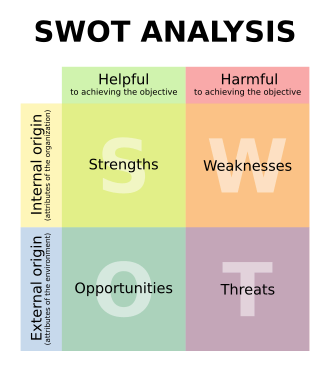Difference between revisions of "AY Honors/Business/Answer Key/es"
(Created page with "<noinclude>") |
(Created page with "</noinclude>") |
||
| Line 169: | Line 169: | ||
<noinclude></noinclude> | <noinclude></noinclude> | ||
| − | + | <noinclude></noinclude> | |
| − | <noinclude | ||
| − | |||
{{CloseReq}} <!-- 5c --> | {{CloseReq}} <!-- 5c --> | ||
{{CloseReq}} <!-- 5 --> | {{CloseReq}} <!-- 5 --> | ||
{{ansreq|page={{#titleparts:{{PAGENAME}}|2|1}}|num=6}} | {{ansreq|page={{#titleparts:{{PAGENAME}}|2|1}}|num=6}} | ||
| − | <noinclude> | + | <noinclude></noinclude> |
| − | </noinclude> | + | <!-- 6. Discutir las maneras en que los beneficios de un negocio pueden ser usados. --> |
| − | <!-- 6. | ||
| − | |||
| − | + | {{clear}} | |
| − | |||
| − | |||
| − | |||
| − | |||
| − | |||
| − | |||
| − | + | {{clear}} | |
| − | |||
| − | |||
<div lang="en" dir="ltr" class="mw-content-ltr"> | <div lang="en" dir="ltr" class="mw-content-ltr"> | ||
| Line 238: | Line 226: | ||
{{clear}} | {{clear}} | ||
| − | + | {{clear}} | |
| − | |||
| − | |||
| − | |||
| − | |||
| − | |||
| − | + | {{clear}} | |
| − | |||
| − | |||
| − | |||
| − | |||
| − | |||
| − | |||
| − | |||
| − | |||
<div lang="en" dir="ltr" class="mw-content-ltr"> | <div lang="en" dir="ltr" class="mw-content-ltr"> | ||
| Line 333: | Line 308: | ||
{{CloseReq}} <!-- 8g --> | {{CloseReq}} <!-- 8g --> | ||
{{ansreq|page={{#titleparts:{{PAGENAME}}|2|1}}|num=8h}} | {{ansreq|page={{#titleparts:{{PAGENAME}}|2|1}}|num=8h}} | ||
| − | <noinclude> | + | <noinclude></noinclude> |
| − | </noinclude | ||
| − | |||
| − | |||
<div lang="en" dir="ltr" class="mw-content-ltr"> | <div lang="en" dir="ltr" class="mw-content-ltr"> | ||
| Line 342: | Line 314: | ||
</div> | </div> | ||
| − | + | {{clear}} | |
| − | |||
| − | |||
<div lang="en" dir="ltr" class="mw-content-ltr"> | <div lang="en" dir="ltr" class="mw-content-ltr"> | ||
Revision as of 23:36, 16 May 2021
Nivel de destreza
2
Año
2015
Version
11.02.2026
Autoridad de aprobación
División Norteamericana
1
1a
1b
1c
1d
1e
1f
1g
1h
1i
1j
1k
1l
1m
1n
2
3
4
5
5a
5b
5c
6
7
This requirement introduces the business concept of a SWOT analysis. SWOT is a popular way to evaluate business ideas and the business itself. While not a perfect tool, it is widely used in organizational decision making and can be very helpful.
Every Pathfinder Club needs to bring in money, and every plan to bring in money is essentially a business plan. So let's run an example your own Club can expand on.
Step 1: Generate ideas for a business. Write down even seemingly crazy ideas because they may prove practical or lead to a great idea. You might also combine ideas as you move through the process.
Example ideas: flea market, car wash, making and selling quilts, building and selling bird houses.
Step 2: Take the first idea - a flea market day at your gym to make money. The Club would go into the business of renting space and tables, as well as offering ancillary services. Is this a good idea? Let's do a SWOT Analysis to find out.
Step 3: Start by everyone brainstorming points for the list of factors. Write them on a sheet of paper or a white board for all to see (which reduces duplication and encourages related ideas). Don't worry about classifying the points during the brainstorming but be thinking about Internal Strengths, and Weaknesses as well as External Opportunities and Threats. Here are some possible SWOT items.
Strengths (internal):
Threats (external):
- People might leave a lot of garbage
- If it snows, few will show up
- The public school two blocks away has a similar event the week before, so people might sell their stuff there instead
- The city might require a permit and might not approve it.
Step 4: Categorize your list and weight it. While categorizing, you should see some things you missed, so add them. Don't just count up the S's and O's vs the W's and T's, you need to assign importance to them. Some threats are only remote or even not real for example. A big opportunity might be worth doing if there is limited threats and the weaknesses can be overcome. However a major weakness in an otherwise great idea can sink it.
Step 5: Can you eliminate threats and fix weaknesses? Perhaps teaming up with another group or finding a donor is the answer.
In this example, we also did a SWOT on the car wash, quilts and birdhouses. We decided that we could earn the Woodworking honor while building the birdhouses and than sell them at our flea market event. We also decided to sell veggie tacos at the event and have a display about our Pathfinder club.
We decided that since we want to do the business in January, our Canadian location (a Weakness for the car wash idea) meant cold weather (a threat in the car wash idea) and that these two factors could lead to frozen Pathfinders which trumped all the Strengths and Opportunities for the car wash business idea.
8
8a
both a concise two or three sentences plus a more detailed analysis of how you plan to run the business
8b
will you use money on hand, borrow, or get investors?
8c
determined through market research and your budgeted costs plus markup.
8d
8e
this will be based on your product, where to best connect with your target market, and especially the resources available to you
8f
this could be a specific place, a range of places (different retailers, door to door, or online)
8g
8h
This is a good outline for any business plan. Every good business plan is written down and checked carefully. Are your assumptioms correct? Have you covered all your expected costs? As you execute your plan, check back to be sure you are following the plan.
9
9a
For your Pathfinder Club business you will want to assign different roles to the participants in the business. Someone should be the President/General Manager too to coordinate the other's work, hold people accountable for performance and help make difficult decisions
9b
The product could be a service or a physical product.
9c
Look back at your promotion plans. You will likely want to try several promotion methods and test which work best
9d
This means getting money from real customers
9e
The report should be to your team, Pathfinder Club Director and to any investors or financial backers
9f
You need to be accountable to the stakeholders. This might include reporting to your church (which likely includes many customers) and show them what you did with the profits. This will help with your next fundraiser.
9g
Evaluation of a business plan is really important because it helps you do even better next time. Where there any failures? What could be improved? Can you add in something that will make the project more profitable? Look at each part of the business and assess for improvement.
10
10a
Everything belongs to God, including your business. Remember to treat God's business right and God will treat you right. Discuss what this means in the context of your plans.
10b
Some discussion starters. Do you have the appropriate licenses and permits? Does your business meet the zoning bylaws? Are you collecting and remitting taxes correctly (or are you exempt and why)? How can you be a good witness to government officials?
10c
Discussion starters include: How can you provide a quality product at a fair price to your customer? Can you find ways to witness and model Christ to your clients?
10d
The Christian businessperson should treat everyone around the business as they would like to be treated. Treat all employees honestly and fairly, and expect them to treat you honestly as well.
11
Other stories to look at:
Jacob's success while working for Laban. He used some kind of business plan for his farm that is hard to understand, but it worked Genesis 30.
As far as we can tell, Jesus called no synagogue preachers to be his closest disciples. Instead Jesus called at least 6 fishermen who owned boats and sold fish. He called Matthew, a businessman contracted to the Romans as a local tax collector. Even Judas seems to be a finance person for he was tasked with keeping the money.
Jesus himself was a businessperson, part of a family business (though in English we read Jesus was a carpenter, the Greek word “tekton” actually describes a craftsman, one who constructs; a versatile builder and stone worker.) Perhaps this is why in His ministry Jesus demonstrated such a broad knowledge of business and why about 34 of his approximately 50 recorded parables dealt with business, finance or workplace content for the illustration. Jesus told parables about many businesses including farming (sower, shepherds, etc), fishing, investing (parable of the talents) buying land (man found treasure, sold everything and bought the field), trading (pearl of great price), and more.
Many of Jesus' public ministry appearances appear to have occurred in the marketplace and workplace.
Paul, Priscilla and Aquila, operated a tent making business, so that none of them appear to have needed others to donate so they could preach. Lydia, a leader in the Philippian Church, was a textile dealer.
James White sold Bibles, Bible Commentaries and other reference books in the frontier to support his and Ellen White's ministry. The Whites also invested in real estate and in preparing their own books for sale. Some were critical of the White's relative financial success, but an investigation into the White's finances found that they legitimately had been supporting themselves plus the infant church from their business endeavors.
Other early Adventists often used businesses to support themselves. For example, Hiram Edson farmed during the summer to support himself while preaching. The Review and Herald and Pacific Press took in outside printing work to subsidize and support the religious work. The Kelloggs created breakfast cereal and built a famous company. Adventists also build a hospital system, book publishing empire, and ran many industries to support the school system.
The SDA Church owns and operates many publishing houses, book centers, schools, hospitals, nursing homes, food factories (most famously Sanitarium Health Foods based in the South Pacific). The Church also owns substantial real estate around the world. Church administration (theologians) has proven to usually be poorly equipped to run businesses owned by the church, which is why professional well trained business people are vital to ensure that the businesses the church does own and operate are run accordingly to good business principles.
References



